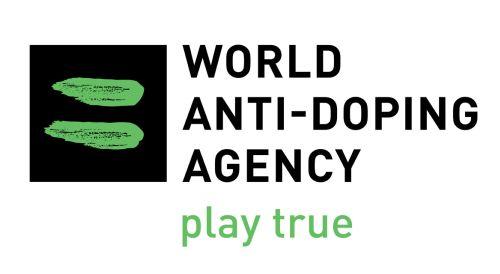WADA Reaffirms Commitment to Africa by Renewing Cape Town Office Agreement
The World Anti-Doping Agency (WADA) has officially extended its agreement to maintain its Africa Office in Cape Town, solidifying the city’s strategic importance in combating doping within sports across the continent. This renewal highlights WADA’s dedication to strengthening anti-doping operations throughout Africa by fostering closer ties with regional sports authorities, athletes, and anti-doping bodies. By continuing its presence in Cape Town, WADA aims to enhance efforts toward promoting clean competition and safeguarding sporting integrity on a continental scale.
South Africa’s role as host not only elevates its standing within the international sports community but also emphasizes the critical need for a comprehensive anti-doping infrastructure tailored specifically for African nations. This move aligns with global trends where localized offices enable more effective implementation of policies and education programs that resonate with regional challenges.
Advancing Anti-Doping Infrastructure and Education Across Africa
With this renewed partnership, WADA is poised to expand its operational capacity through several targeted initiatives designed to reinforce anti-doping measures continent-wide:
- Enhanced Monitoring Systems: Deploying advanced surveillance techniques aimed at detecting doping violations more efficiently across diverse African sporting events.
- Comprehensive Training Programs: Rolling out educational workshops and certification courses for athletes, coaches, medical staff, and support teams focused on ethical sport practices.
- Strengthening Collaborative Networks: Building stronger alliances between national federations, local anti-doping organizations (NADOs), and international partners to share resources and expertise.
- Investment in Scientific Research: Funding studies that explore region-specific doping trends and develop innovative testing methodologies suited for African contexts.
This sustained presence ensures that WADA can adapt strategies dynamically while nurturing local expertise—key factors in establishing a resilient framework capable of addressing emerging doping challenges unique to various African countries.
Impact on Athletes and Sports Governing Bodies Across Africa
The continuation of WADA’s office in Cape Town marks a transformative phase for both athletes and governing bodies committed to upholding clean sport standards. Enhanced resources will empower national anti-doping organizations (NADOs) throughout Africa by providing access to improved training materials, compliance tools, and regulatory guidance aligned with global best practices.
Athletes stand to benefit significantly from increased awareness campaigns emphasizing the consequences of doping violations alongside education about maintaining peak performance through legitimate means. For example, recent surveys indicate that over 70% of African athletes express greater confidence when supported by robust educational frameworks—a figure expected to rise as these programs expand further under WADA’s guidance.
- Evolving Knowledge Base: Targeted outreach will deepen understanding among competitors regarding prohibited substances and testing procedures specific to their disciplines.
- Sustainable Institutional Growth: Sports organizations will gain from reinforced governance structures designed explicitly around transparency and accountability concerning doping control measures.
- Bilateral & Multilateral Cooperation: The office facilitates cross-border partnerships enabling shared intelligence gathering which enhances detection capabilities across neighboring countries’ competitions.
This evolving environment positions compliance not just as an obligation but as an essential pillar supporting athlete reputations while extending career longevity through adherence to ethical standards worldwide.
Strategic Plans for Regional Unity in Combating Doping Practices
The renewed hosting agreement paves the way for innovative strategies aimed at fostering deeper collaboration among African nations against doping threats. Central components include enhancing communication channels between stakeholders such as NADOs, sports federations, government agencies, athlete representatives—and integrating their efforts into cohesive action plans tailored regionally rather than nationally isolated approaches alone. Key initiatives under consideration are:
- Africa-Wide Educational Workshops: Organizing continent-spanning seminars focusing on emerging substances abuse risks alongside preventive tactics customized per sport category or demographic group;
- Athlete & Coach Exchange Programs: Facilitating knowledge transfer via exchange visits encouraging adoption of proven integrity-building methods; < li >< strong >Augmented Financial Support:< / strong > Pursuing diversified funding sources including private sector sponsorships plus international grants dedicated exclusively towards sustaining long-term antidote projects;< / li >
< p >To coordinate these endeavors effectively , plans are underway toward forming an inter-country task force comprising delegates from each participating nation . This body would oversee policy harmonization , monitor progress , address obstacles promptly ,and ensure adaptability amid shifting sporting landscapes . Anticipated outcomes include :
| Expected Outcome< / th > | Description< / th > < / tr > < / thead > |
|---|---|
| Standardized Protocols< / td >
Adoption of uniform testing procedures ensuring fairness regardless of country borders . | |
| Heightened Awareness | Broader comprehension amongst all participants about rules governing prohibited substances use . |
Joint research ventures analyzing patterns related specifically towards substance misuse within different regions .
Concluding Thoughts on WADA’s Strengthened Engagement Across AfricaThe decision by World Anti-Doping Agency (WADA) reaffirming Cape Town as home base for its continental operations signals a vital commitment toward eradicating illicit performance enhancement practices throughout African sports arenas. Beyond reinforcing fair play principles globally recognized today — this initiative fosters synergy between international oversight entities alongside grassroots-level stakeholders who understand local nuances best. |














